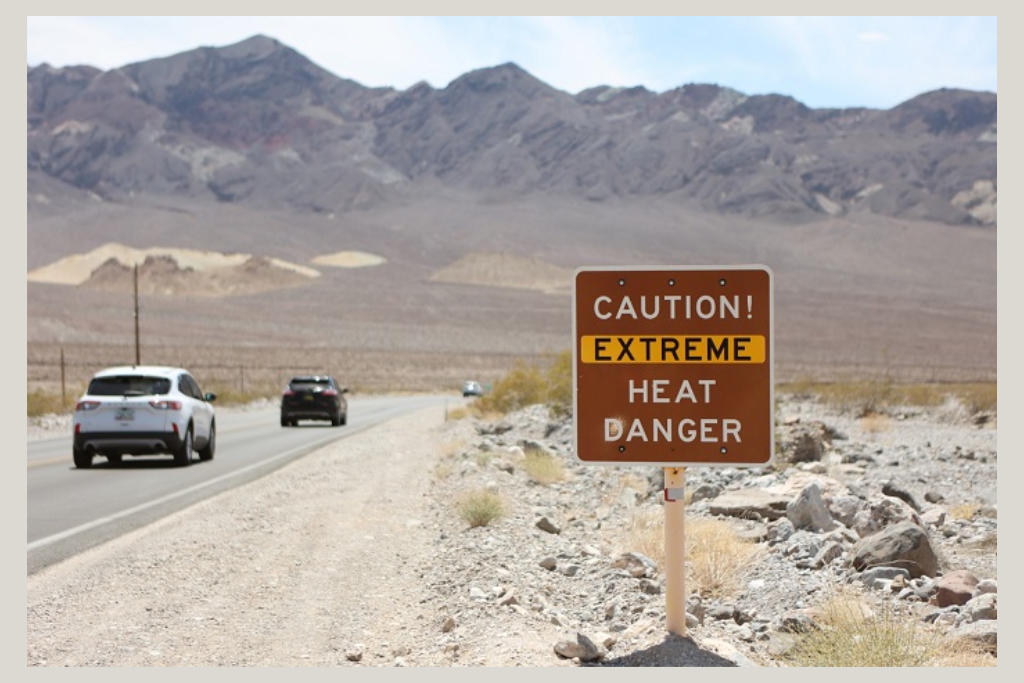In recent times, the planet has been gripped by a series of scorching heatwaves and devastating wildfires, leaving health authorities worldwide alarmed and urging people to take precautions. This alarming trend serves as a stark reminder of the profound impact of global warming on our environment. From Athens, Greece, to Rome, Italy, and across continents, the effects of these extreme weather events have been felt, leaving behind a trail of destruction and prompting urgent calls for action to mitigate climate change.
Heatwaves and Wildfires Ravage the Northern Hemisphere:
Throughout the Northern Hemisphere, heatwaves have shattered temperature records, while wildfires have wreaked havoc on the affected regions. In Greece, near Athens, wildfires forced the evacuation of 1,200 children from a seaside resort, posing a serious threat to holiday camps. Similar emergencies unfolded in other parts of Greece, including Kouvaras, Lagonissi, Anavyssos, and Saronida, where homes were engulfed in flames.
Global Health Concerns and Urgency for Emission Reduction:
Health authorities across North America, Europe, and Asia have issued warnings, emphasizing the critical need for people to stay hydrated and seek shelter from the scorching sun. The World Meteorological Organization (WMO) Secretary-General, Petteri Taalas, highlighted the substantial impact of such extreme weather events on human health, ecosystems, economies, agriculture, energy, and water supplies. These consequences underscore the urgent imperative to reduce greenhouse gas emissions swiftly and significantly.
The Heatwave’s Global Reach:
The searing heat has impacted various regions worldwide. In Rome, Italy, temperatures near a record 39°C left visitors and residents astounded, as even those from typically hot regions like Texas, USA, found it exceptionally hotter. China reported a new high temperature for mid-July, reaching 52.2°C in Xinjiang’s Sanbao village. Japan issued heatstroke alerts in numerous prefectures, with cases reported and hospitalizations in Tokyo. Cyprus experienced temperatures above 40°C, resulting in fatalities and hospitalizations.
Escalating Heatwave Impact in the United States:
Western and southern states in the United States, known for high temperatures, witnessed an “oppressive” heatwave affecting over 80 million people. California’s Death Valley approached a near-record temperature of 52°C, while Phoenix, Arizona, tied its record of 18 consecutive days above 43°C. The National Weather Service warned of sustained high temperatures and elevated overnight lows, creating hazardous conditions for residents. Moreover, wildfires ignited in rural areas of Southern California, exacerbating the crisis.
International Ramifications:
Canada faced a significant challenge, with hundreds of wildfires burning across the country, including a large number deemed out of control. The resulting smoke crossed the border into the United States, leading to air quality alerts across the northeast. Meanwhile, Europe witnessed historic heat levels, with Italy issuing a red alert for 16 cities, including Rome, Bologna, and Florence. Spain also struggled with scorching temperatures, reaching 47°C in Villarrobledo.
Asian Regions Battle Extreme Weather:
In addition to heatwaves, parts of Asia confronted torrential rain and devastating floods. South Korea’s recent monsoon rains resulted in numerous casualties from flooding and landslides. The country’s president vowed to reevaluate the nation’s approach to extreme weather events. These ongoing monsoons are predicted to persist, posing further challenges to affected areas.
The recent surge in heatwaves and wildfires across the globe underscores the urgent need for immediate action to combat climate change. The toll on human lives, ecosystems, economies, and overall well-being emphasizes the necessity of reducing greenhouse gas emissions to mitigate these extreme weather events. As the world faces escalating temperatures and related catastrophes, international collaboration and comprehensive strategies are imperative to safeguard the planet’s future. Only through collective efforts can we hope to mitigate the devastating impacts of global warming and build a more resilient world.
For all the latest news, keep visiting The World News.



